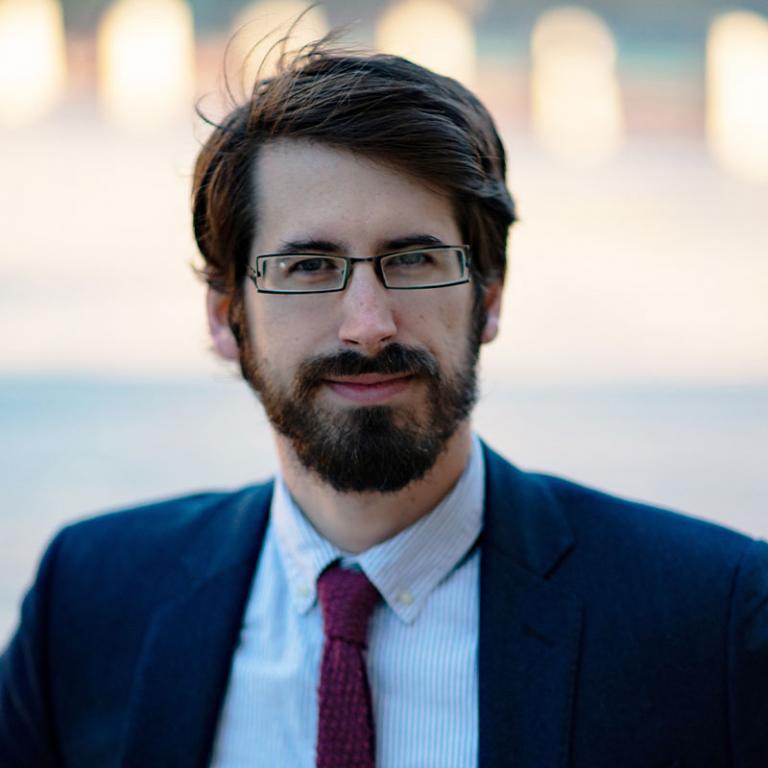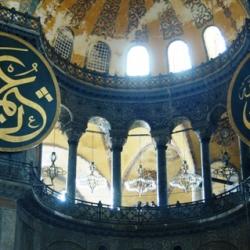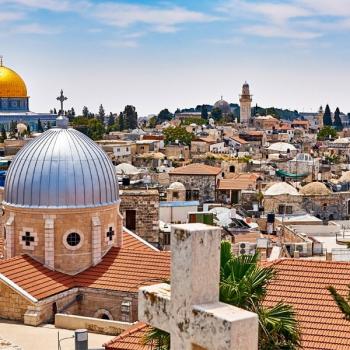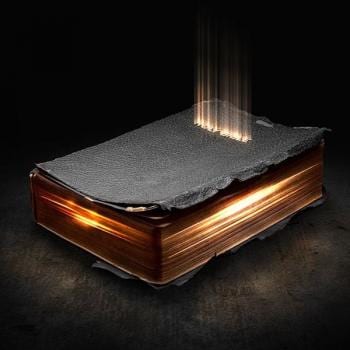Do you think ‘In God We Trust’ has been the US motto since the earliest days of the country? If you do, you’re not alone. A lot of people assume that ‘In God We Trust’ has been stamped onto American coins and buildings for hundreds of years, simply because the motto has become so ubiquitous across U.S. institutions. But the motto actually entered U.S. institutional life at a very particular moment. In 1956, President Eisenhower signed two different laws which mandated the use of ‘In God We Trust’ across the U.S. The first law required this phrase to be on all our money. The second law designated the phrase as the official motto of the country.
Why did we suddenly acquire a new country motto? After all, the country did not have an official motto for the first 180 years. And where did this motto come from? Who invented it?
The phrase ‘In God We Trust’ actually is derived from The Star-Spangled Banner, where it’s part of a rhyming couplet in the final verse of the poem by Francis Scott Key, though it is a verse that is rarely sung as part of the national anthem, which is why so few people recognize the origins of the phrase. The lines read in the original:
Then conquer we must, when our cause it is just,
And this be our motto – “In God is our trust,”
The phrase ‘In God We Trust’ thus came from this poem. But why did President Eisenhower decide to make it the official motto of the country? In 1956, the U.S. was in the midst of the Cold War with Russia. As the conflict intensified, US rhetoric around nationalism and patriotism became increasingly tied up in rhetoric of piety. The Soviet Union was frequently denounced as a country of ‘godless communists,’ and the ‘godlessness’ was emphasized as a critical way in which the Soviet Union was distinguished from the U.S. This meant that while American civil religion had always been part of the country’s conception of the patriot, such conceptions became more deeply entrenched in this era. These two trends–the connection of patriotism with piety and the defining the enemy Soviets as godless–were critical to the adoption of ‘In God We Trust’ as the national motto. President Eisonhower himself was a proponent of religion initiatives, and he also launched the tradition of the annual national prayer breakfast.
The motto of the United States is: “In God We Trust.” But the motto is a relatively recent invention, dating back to the 1950s. Why did the U.S. institute this motto, and what does it tell us about American identity and religion? Watch this video to find out how ‘In God We Trust’ came to be the motto of the U.S.
Religion For Breakfast launched as a video series in 2014, and now has over 200,000 subscribers on YouTube and over 7 million views. It is commonly used as an education tool in the classroom. Written and produced by religion scholar Andrew Henry, Religion For Breakfast covers a wide range of introductory videos on religion and religious practices around the world, from the rise of Christianity to the role of Japanese religion in the development of Pokemon, to the world of myth and apocryphal literature.

















